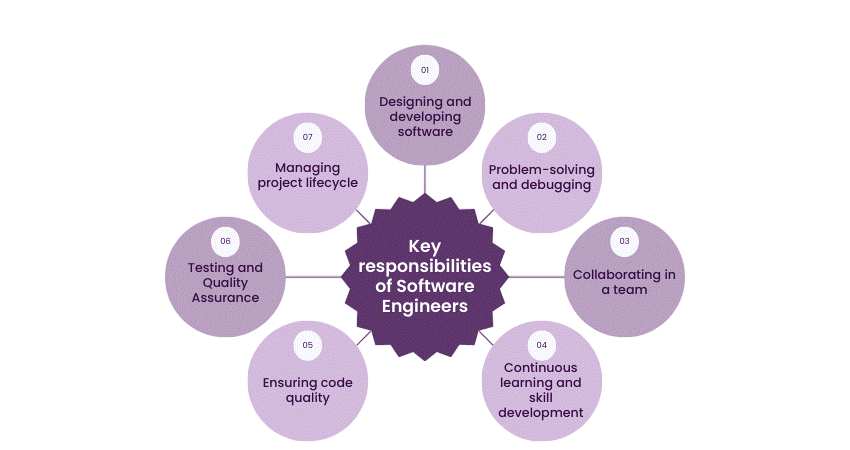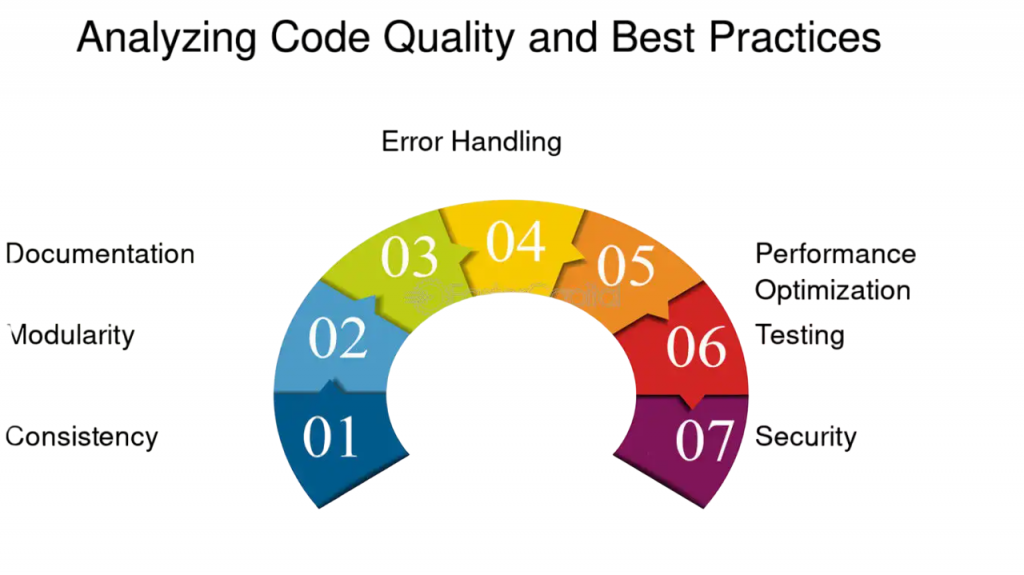
- Who is a software developer?
- Overview of Responsibilities
- Skills Required (Languages, Tools, Soft Skills)
- Everyday Workflow and Roles
- Application Development Lifecycle Involvement
- Developer Collaboration with Other Teams
- Best Practices for Code Quality
- Career Path and Progression
- Specializations (App, Backend, Full‑Stack, etc.)
- Working Styles (Freelance vs Employee)
- Salary Trends and Market Demand
- Growth and Future Outlook
Who is a software developer?
A software developer is a professional who designs, builds, tests, and maintains software applications or systems. They take business or user requirements and translate them into functional software products, ranging from mobile apps and web platforms to large-scale enterprise solutions Java Training. Software developers are the creative and technical minds behind the programs we use daily whether it’s a social media app, a banking portal, a video game, or an automated business tool. Their work is crucial in nearly every industry, as technology underpins modern operations.
To Earn Your Java Training Certification, Gain Insights From Leading Web Developer Experts And Advance Your Career With ACTE’s Java Training Course Today!
Overview of Responsibilities
The responsibilities of a software developer can vary depending on the type of project, industry, and specialization. Common duties include:
- Analyzing requirements to determine the scope and purpose of a software solution.
- Designing software architecture and choosing appropriate technologies.
- Writing clean, maintainable, and efficient code.
- Testing and debugging to ensure software is free from defects Web Developer vs Software Developer.
- Collaborating with designers, testers, and business analysts.
- Maintaining and updating software to adapt to user feedback or technological changes.
- Documenting code and processes for future reference.

Designing, creating, testing, and maintaining software programs are the responsibilities of a software developer. To comprehend needs and provide effective, superior solutions, they work with cross-functional teams. In order to stay up to date with changing technology, developers also solve problems, optimize performance, and constantly refresh their abilities.
Skills Required (Languages, Tools, Soft Skills)
To succeed, a software developer needs a blend of technical skills and soft skills.
Technical skills include:- Proficiency in programming languages (e.g., Java, Python, C++, JavaScript).
- Knowledge of databases (SQL, NoSQL).
- Understanding of version control systems like Git Socket Programming in Java.
- Familiarity with software frameworks and libraries.
- Debugging and problem-solving abilities. Soft skills include:
- Communication for effective team collaboration.
- Time management to meet project deadlines.
- Creativity to design innovative solutions.
- Critical thinking for troubleshooting complex issues.
- Planning – Understanding client needs and defining project goals.
- Design – Creating system architecture and UI/UX wireframes.
- Implementation – Writing code based on designs Purpose Of Abstract Class .
- Testing – Ensuring quality and fixing defects.
- Deployment – Delivering the finished product to users.
- Maintenance – Updating and improving the software.
- Project managers to track timelines.
- UI/UX designers to implement intuitive interfaces.
- QA testers to resolve bugs.
- System administrators for deployment.
- Business analysts to align features with business goals.
- Writing readable and well-commented code.
- Following coding standards and style guides.
- Breaking code into modular components.
- Conducting unit and integration tests.
- Using version control for tracking changes.
- Frontend Developer – Focuses on user interface and experience.
- Backend Developer – Works on server-side logic and databases.
- Full-Stack Developer – Skilled in both frontend and backend.
- Mobile App Developer – Builds iOS and Android applications.
- Game Developer – Creates video games using engines like Unity or Unreal.
- Embedded Systems Developer – Programs software for hardware devices.
Would You Like to Know More About Java Training? Sign Up For Our Java Training Now!
Everyday Workflow and Roles
A typical day for a software developer might include writing and reviewing code, attending team meetings, debugging reported issues, and working on new features. Developers often use Agile or Scrum methodologies, Java Training which break projects into sprints with daily stand-up meetings to discuss progress. Depending on the organization, developers may also engage in pair programming, code reviews, and brainstorming sessions for feature enhancements.
Application Development Lifecycle Involvement
Software developers often participate in all stages of the Software Development Life Cycle (SDLC):
Developer Collaboration with Other Teams
Developers rarely work in isolation. They coordinate with:
Preparing for Java Job Interviews?Sign Up For Our Java Interview Questions Today!
Best Practices for Code Quality
Professional developers follow coding best practices to ensure maintainability and scalability Reverse a String in Java :

Software that is dependable and maintainable is ensured by maintaining good code quality.Adapt to recommended practices such as code reviews, comprehensive testing, and clean code writing.
Career Path and Progression
A developer’s career often starts with entry-level roles like junior developer, followed by mid-level developer, and then senior developer. With experience, professionals may move into roles like technical lead, Java Serialization software architect, or engineering manager. Some developers choose to specialize in a niche area, while others transition into roles like product manager or CTO.
Are You Interested in Learning More About FullStack With Java Training?Java Sample resume To Ace Your Interview!
Specializations (App, Backend, Full-Stack, etc.)
Software development has multiple specializations:
Working Styles (Freelance vs Employee)
Developers can work as full-time employees in companies, enjoying stable income and benefits, or as freelancers, offering flexibility StringBuilder Methods in Java and diverse projects but with variable earnings. Remote work is also increasingly common, allowing developers to work for companies worldwide.
Salary Trends and Market Demand
Software developers are in high demand globally, leading to competitive salaries. Entry-level developers can earn modest incomes, but senior or specialized developers often command high pay. The rise of AI, cloud computing, cybersecurity, and mobile applications has further increased market demand.
Growth and Future Outlook
The future for software developers is bright. With continuous advancements in technology from AI to blockchain developers will remain at the forefront of innovation. The U.S. Bureau of Labor Statistics projects strong growth in software development jobs over the next decade, making it Java Training one of the most promising career paths.





